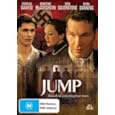|

UMP is a psychological drama revealing for the first time the extraordinary circumstances behind the unjust murder trial of the young Jew, Philippe Halsman, who would later become the most sought after celebrity portrait photographer of his generation. Set in 1928 Austria during the rise of fascism, the story documents the corrupt relationship between Philippe and his father, the events leading to his father's death, and focuses a sharp but delicate eye upon the anti-Semitic atmosphere that quickly led to Philippe's conviction. On a September afternoon in the heart of the picturesque Alps, two Latvian tourists, 22-yr old Philippe Halsman, a soft-spoken, compassionate engineering student and his overbearing father Morduch undertook a hiking tour. Though he loved his father deeply, the seething dynamic between them never allowed this affection to surface. By the end of the day, Morduch Halsman, a stubborn, aggressive, well-to-do dentist, determined to "make a man" of his son by the brute force of physical labor, was dead. Philippe maintained that his father had fallen and was still alive when he ran for help, but when he returned, his father's body lay face down, his head split open with an ax, his blood and belongings strewn about the area. With vague circumstantial evidence pointing to Philippe, he was immediately arrested and charged with patricide. No one wanted to defend an outsider, let alone a Jew, and the local community hoped for a speedy trial that would wash their hands of the monstrous act. Deliberately uninformed of his rights, Philippe was left in the dark of his cold cell until his mother and sister, alerted to the crisis, managed to procure a lawyer from the Jewish quarter in Vienna. With no time to prepare his case, Philippe and his passionate lawyer were left scrambling as the trial began. While witnesses steered their testimony towards a guilty verdict, and while the courtroom saw such gruesome evidence as Morduch's head, severed from his body by local autopsists, Philippe found himself so alienated he could not even bring himself to help his own cause. Enraged that the trial was conducted with such hostility towards him, he sat brooding with anger, given to frequent outbursts of frustration. In a mere four days, the highly-charged, emotional trial came to a close. Though no evidence or any clear motive had been established, the deliberation was over as soon as it began. Philippe Halsman was convicted of patricide and sentenced to ten years in prison thus becoming the first Jewish victim of the incipient anti-Semitism of National Socialism. Not until well-known international figures such as Albert Einstein, Sigmund Freud and Thomas Mann rallied to his cause, demanding a fair trial, was Philippe freed. Under the condition that he never return to Austria, he made his way out of the country harboring the darkest of wounds. Not only was he never allowed to properly grieve his father's death, but he would forever be haunted by visions of his falling father, of the severed head, and the black hole of his own memory, filled with doubt, guilt and grief. Though he never spoke publicly about that fateful summer, its influence was sharply felt in the photography that would soon make Philippe famous. Commissioned by the likes of Marilyn Monroe, Brando, Picasso, Nixon and the Kennedys, Halsman turned formal fashion shots into serious investigations of character. Engaging his subjects in disarming chatter, he would often ask them to jump, which he believed would free them of their postures and defenses. "When you ask a person to jump, his attention is mostly directed toward the act of jumping and the mask falls so that the real person appears." From surrealist flourishes such as headless bodies or bodiless heads, to "jumpology", which would become his trademark, Philippe pursued his quest to uncover the hidden truths behind the masks of his subjects. But only in private would he turn this investigation upon himself. It seems that Philippe was able to witness his father's true character in that horrible moment so many years ago, and perhaps, in doing so, was able to love him in absolute. But as to the question of murder, obscured by the trauma of the moment and the whirlwind of prejudice in its aftermath, Philippe himself was rendered impotent to answer
http://youtube.com/watch?v=zWeIbtoEDmY
|

